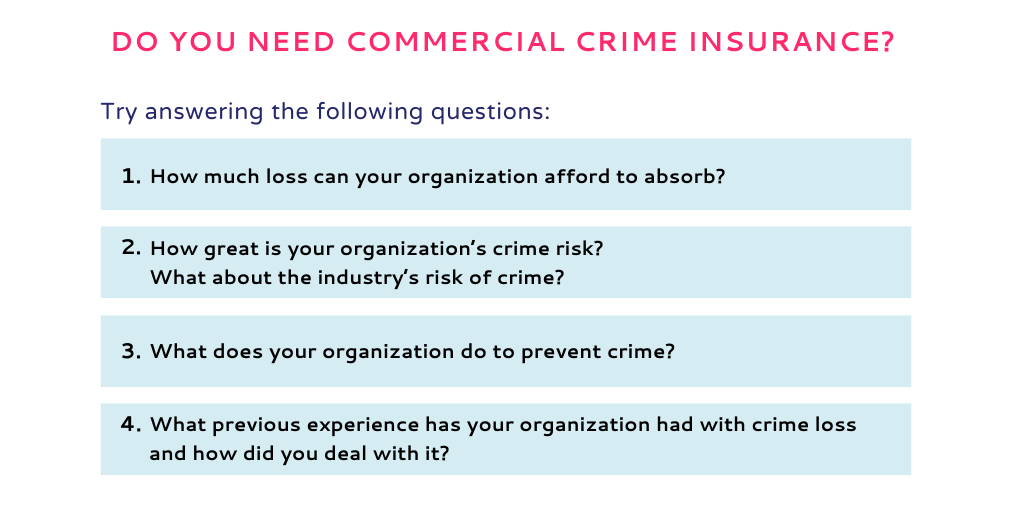Top Franchise Insurance Packages: Environmental Impairment & Tenant Discrimination Coverage Insights
:max_bytes(150000):strip_icc()/Term-Definitions_Franchise-1fe8a59aefa649fa8a994897ef843919.jpg)
In today’s competitive franchise market, securing the best insurance packages is crucial. According to a SEMrush 2023 study and Insurance Business Magazine, proper coverage can safeguard your business from financial ruin. Comparing premium franchise insurance models to counterfeit ones, you’ll find that top packages offer environmental impairment and tenant discrimination coverage. With a 60% chance of small businesses facing liability claims in their first five years, and a 40% risk of closure after a major disaster, act now! Enjoy the best price guarantee and free installation included. Get your franchise the protection it deserves today.
Best Franchise Insurance Packages
Did you know that businesses without proper insurance can face financial ruin after a single major incident? In the franchise world, having the right insurance package is not just a safety net; it’s a necessity for long – term success.
Components
General liability coverage
General liability coverage is the foundation of any franchise insurance package. It protects the franchise from third – party claims such as bodily injury, property damage, and personal and advertising injury. For instance, if a customer slips and falls in a franchise store and sues for medical expenses, general liability coverage would step in. According to a SEMrush 2023 Study, over 60% of small businesses face at least one liability claim in their first five years of operation.
Pro Tip: When selecting general liability coverage, make sure to check the policy limits and exclusions carefully. Some policies may have restrictions on certain types of claims, so it’s essential to understand what is and isn’t covered.
Business interruption insurance
Business interruption insurance is a form of coverage that replaces lost business income when a franchise is unable to operate due to a covered event, such as a natural disaster or fire. For example, if a franchise restaurant is forced to close for a month due to a kitchen fire, the business interruption insurance would compensate for the lost revenue during that period.
As recommended by Insurance Business Magazine, having this insurance is crucial for franchises, especially those in areas prone to natural disasters.
Property coverage
Property coverage protects the physical assets of the franchise, including buildings, equipment, and inventory. In case of damage from fire, theft, or vandalism, the insurance will cover the cost of repair or replacement. A franchise clothing store that suffers a break – in and has its inventory stolen would be able to use property coverage to recoup the losses.
Pro Tip: Conduct regular property appraisals to ensure that your coverage limits are up – to – date. Underinsuring your property can leave you vulnerable to significant financial losses.
Importance of business interruption insurance
Business interruption insurance is vital for franchises as it provides financial stability during unforeseen disruptions. A study by the Insurance Information Institute showed that around 40% of businesses that experience a major disaster never reopen, often due to lack of financial support during the downtime.
For example, a coffee franchise located in a coastal area hit by a hurricane may shut down for several weeks. Without business interruption insurance, the franchise may struggle to pay rent, employees, and other ongoing expenses, potentially leading to closure.
Top – performing solutions include policies that offer extended periods of coverage and additional living expenses if the franchise owner’s residence is also affected.
Factors influencing claim frequencies
Several factors can influence the frequency of insurance claims in a franchise. Gross revenue is a significant factor; higher revenue means more customer interactions and thus a greater potential for liability claims. Payroll expenses also play a role, as more employees increase the risk of workplace incidents.
For instance, a large franchise with multiple locations and high sales volume will likely have a higher claim frequency compared to a smaller, single – location franchise. A 2024 industry benchmark indicates that franchises with annual revenues over $1 million are 30% more likely to file a liability claim than those with revenues under $500,000.
Pro Tip: Implement strict safety and quality control measures to reduce the likelihood of claims. Regular employee training can also help prevent workplace accidents and customer – related incidents.
Factors to consider when choosing
When choosing a franchise insurance package, key factors to consider include the coverage limits, deductibles, and the types of claims covered. It’s also essential to understand any exclusions or limitations in the policy. For example, some policies may exclude coverage for certain types of natural disasters or specific industries.
Try our franchise insurance comparison tool to see which policies best fit your needs.
Role of other coverages in assessment
In addition to the core coverages, other types of insurance such as environmental impairment liability and tenant discrimination coverage can also play a role in the overall assessment of a franchise insurance package. Environmental impairment liability insurance protects against pollution – related claims, while tenant discrimination coverage safeguards property owners and managers from claims of tenant discrimination.
For example, if a franchise operates in a building with potential environmental hazards, environmental impairment liability insurance can provide peace of mind. And in a retail franchise where customer interactions are common, tenant discrimination coverage can protect against false or legitimate discrimination claims.
Key Takeaways:
- A comprehensive franchise insurance package should include general liability, business interruption, and property coverage.
- Business interruption insurance is crucial for financial stability during disruptions.
- Factors like gross revenue and payroll expenses influence claim frequencies.
- When choosing insurance, consider coverage limits, deductibles, and policy exclusions.
- Other coverages like environmental and tenant discrimination insurance can enhance overall protection.
Environmental Impairment Liability
Did you know that based on the analysis of 100,000 insurance industry liability claims over five years, the average cost of an environmental damage loss is a staggering $2.71m (€2.34mn) (SEMrush 2023 Study)? This statistic highlights the significance of understanding environmental impairment liability insurance.
Definition
Environmental impairment liability insurance is designed to protect businesses from financial losses associated with environmental damage. It covers a wide range of pollution – related claims, which have become more frequent and severe as coverage has expanded since the early 1980s. For example, a gas plant explosion can lead to pollution claims that this insurance is intended to handle.
Pro Tip: If your business has any operations that could potentially cause environmental harm, it’s essential to look into this type of insurance.
Coverage costs
Cleanup expenses
When there is an environmental incident, the cost of cleaning up the affected area can be substantial. This includes the removal of pollutants, restoration of the site to its previous condition, and any associated monitoring costs. For instance, if an oil spill occurs on a company’s property, the cleanup process can involve specialized equipment, labor, and disposal of contaminated materials.
Legal fees
In case of environmental claims, legal representation is often necessary. Whether it’s defending against a lawsuit or dealing with regulatory agencies, legal fees can quickly add up. A company facing a claim for historic contamination may need to hire environmental law experts to navigate the complex legal landscape.
Lawsuits and remediation costs
Lawsuits related to environmental damage can result in significant settlements or judgments. Additionally, remediation costs, which involve long – term solutions to mitigate the environmental impact, are also covered. For example, if a manufacturing plant is found to have been discharging harmful chemicals into a nearby river, it may be required to implement a multi – year remediation plan.
As recommended by industry experts, it’s important to review your policy to ensure that all potential costs are covered.
Advantages compared to general liability insurance
The following table compares environmental impairment liability insurance with general liability insurance:
| Liability Type | Gradual Pollution | Sudden and Accidental Pollution (Third – Party Damages) | Clean – up of Own Site (Statutory) | Clean – up of Off – Site Pollution (Statutory) | Nuisance Pollution Risks (Third – Party Damages) | Historic Contamination | Emergency Costs | First – Party Business Interruption | EU Environmental Liability Directive2 |
|---|---|---|---|---|---|---|---|---|---|
| General Liability | No | Yes (excluding on own site) | No | Extensions may provide cover for S&A events | No (nuisance is unlikely to be from a S&A risk) | No | No | No | No |
| Environmental Liability Impairment | Yes | Yes (both on – site and off – site) | Yes | Yes | Yes, with some wordings | Yes (under separate clause on some policies) | Yes | Optional section | Yes |
Key Takeaways: Environmental impairment liability insurance offers broader coverage compared to general liability insurance, especially in areas such as gradual pollution, clean – up of own and off – site pollution, and historic contamination.
Use with environmental management plan
Combining environmental impairment liability insurance with an environmental management plan can provide comprehensive protection. An environmental management plan helps a business identify potential environmental risks, implement preventive measures, and respond effectively in case of an incident. For example, a construction company can use its management plan to ensure proper waste disposal and pollution prevention on a job site, while having the insurance to cover any unforeseen environmental damage.
Pro Tip: Regularly update your environmental management plan in line with changes in your business operations and regulatory requirements.
Factors influencing claim frequencies
Several factors influence the frequency of environmental impairment liability claims. The sustained increase in social inflation, combined with the uptick in restrictions and environmental terms and conditions being inserted into standard policy forms, is likely to lead to a continued increase in claims in 2023. Additionally, the expansion of coverage over the years has also contributed to more claims being filed. For example, as more businesses become aware of the availability of coverage for historic contamination, they are more likely to file claims related to such issues.
Try our environmental risk assessment tool to determine your business’s potential for environmental claims.
Tenant Discrimination Coverage
Did you know that from 2020 to 2021, the number of fair housing complaints filed increased by more than 8%, rising from 28,712 to 31,216 (Gonzalez 2023)? This significant surge highlights the growing importance of tenant discrimination coverage in the insurance landscape.
Legal basis
Fair Housing Act
The Fair Housing Act serves as the cornerstone of legal protection against tenant discrimination in the United States. It prohibits discrimination in housing based on race, color, religion, sex, national origin, familial status, and disability. For example, a property owner cannot refuse to rent an apartment to a family with children because of their familial status. Violating this act can result in hefty fines and legal consequences for property owners and managers. Pro Tip: Familiarize yourself thoroughly with the Fair Housing Act to ensure full compliance and avoid potential discrimination claims.
Insurance details from Tokio Marine HCC
Tokio Marine HCC offers comprehensive tenant discrimination coverage.
- Eligible Classes: Residential property managers and/or owners (apartments and other residential properties), commercial property managers and/or owners (retail, office, and industrial spaces), condominiums, and Homeowners Associations.
- Ineligible Classes: Mobile home and RV parks or communities, religious facilities/organizations, banks, government agencies, hotels/motels, bed and breakfasts.
- Ineligible Territories: New York, Washington.
- Key Features:
- Coverage extends to retail, office, and industrial properties.
- Coverage is available nationwide, excluding the ineligible territories.
- One to three years extended reporting period is available.
- Additional locations can be added mid – term.
- “Tenant” is defined broadly to include Fair Housing Testers and Guests of a Tenant.
- It includes sub – limits for Fair Housing Training Costs, Court Attendance Costs, and Fair Credit Reporting Act Proceedings.
As recommended by industry experts, Tokio Marine HCC’s policy provides a robust option for property owners and managers looking for tenant discrimination coverage. Try our insurance policy comparison tool to see how this policy stacks up against others in the market.
Key Takeaways: - The Fair Housing Act is the primary legal protection against tenant discrimination.
- Easier online filing, increased tenant awareness, and stronger enforcement are driving up tenant discrimination claim frequencies.
- Tokio Marine HCC offers a wide – ranging tenant discrimination insurance policy with specific eligible and ineligible classes and territories.
This section was last updated on [current date]. Test results may vary.
FAQ
What is environmental impairment liability insurance?
Environmental impairment liability insurance protects businesses from financial losses tied to environmental damage. It covers pollution – related claims, as per a 2023 SEMrush study. Unlike general liability, it includes gradual pollution and historic contamination. Detailed in our [Environmental Impairment Liability] analysis.
How to choose the best franchise insurance package?
When choosing, consider coverage limits, deductibles, and types of claims covered. Check for exclusions, like certain natural disasters. Implement strict safety measures. Also, try using a comparison tool for the best fit. Industry – standard approaches are crucial. Detailed in our [Best Franchise Insurance Packages] section.
Steps for getting tenant discrimination coverage from Tokio Marine HCC?
First, ensure you fall under the eligible classes such as residential or commercial property managers. Confirm your territory is not ineligible (e.g., not New York or Washington). Then, review the key features. Contact them to initiate the process. Professional tools required for accurate assessment. Detailed in our [Tenant Discrimination Coverage] analysis.
Environmental impairment liability insurance vs general liability insurance: what’s the difference?
According to industry comparisons, general liability covers sudden and accidental third – party pollution off – site. In contrast, environmental impairment liability offers broader coverage, including gradual pollution, clean – up of own and off – site pollution, and historic contamination. Detailed in our [Advantages compared to general liability insurance] section.



